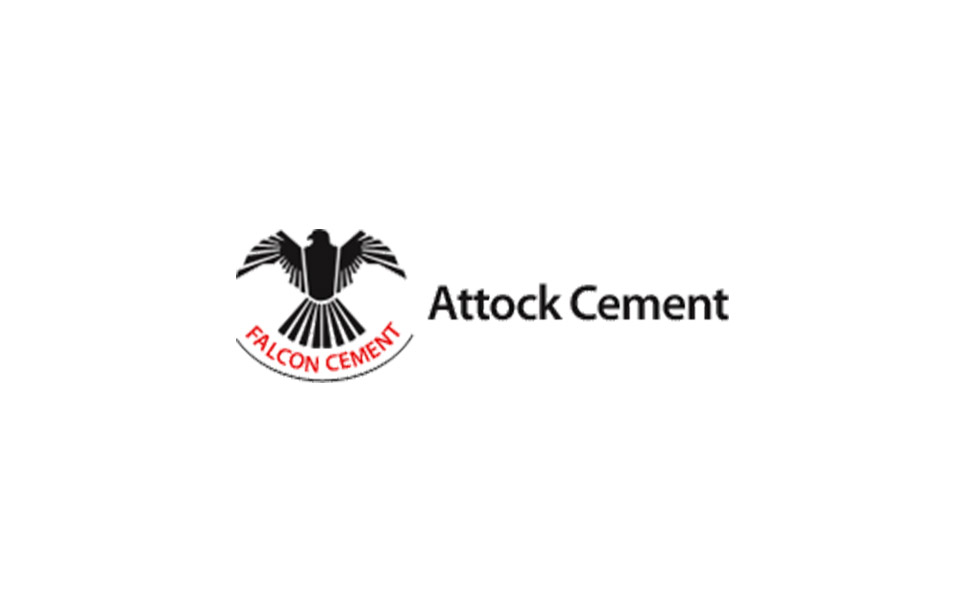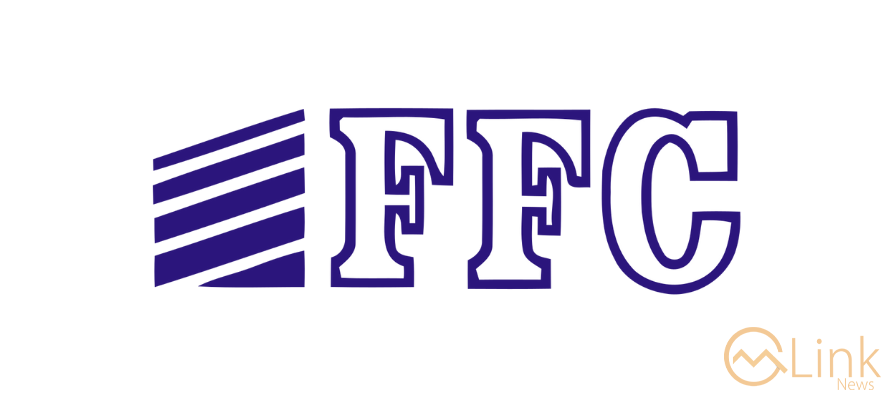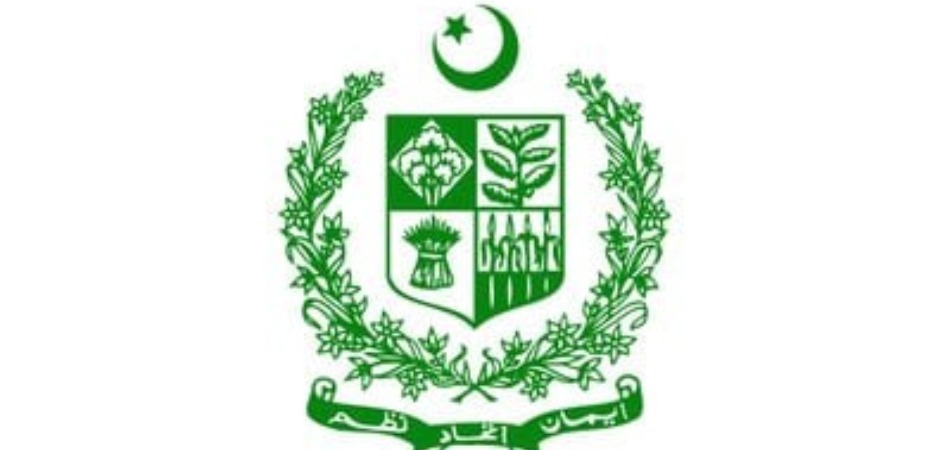ACPL to hit Rs352/share by December 2025

MG News | June 30, 2025 at 01:55 PM GMT+05:00
June 30, 2025 (MLN): Attock Cement Pakistan Limited (PSX: ACPL) is poised to
reach a price target of Rs352/share by December 2025, offering an upside of 26%
over the last day’s close.
The investment outlook for the company is supported by multiple strategic advantages and attractive valuations, according to a report by Taurus Securities Limited.
ACPL stands as the second-largest cement producer in the
South region and holds a 15% share in Pakistan’s cement exports.
Its presence in both domestic and international markets
gives it a strong competitive edge.
Additionally, the company benefits from cost advantages,
primarily due to its relatively low reliance on the National Grid, helping it
maintain efficiency during periods of power supply instability.
The location of ACPL’s manufacturing plant further enhances its strategic positioning.
Situated near major infrastructure and mining
projects such as CPEC Phase-II, Reko Diq, and other highway developments in
Balochistan, the plant also enjoys convenient access to key seaports including
Karachi, Port Qasim, and Gwadar.
These geographical benefits not only streamline logistics
but also open avenues for exports and bulk project supplies.
Another potential trigger for ACPL’s stock is the expected
reduction in finance costs going forward, contributing to earnings growth.
Moreover, the company has recently attracted considerable
interest from prospective buyers, following the sponsors’ indication of a
potential sale.
This development could serve as a major catalyst, especially
as the current stock trades at a substantial discount to its replacement cost, indicating
that any acquisition offer could be significantly higher than the market price.
The company’s earnings for FY25 are expected to clock in at
Rs12.5 per share. However, several risks remain.
These include the potential for lower gross margins due to a
greater share of exports in the sales mix, limited scope for expanding domestic
market share, and delays in energy-efficient project execution.
Furthermore, earnings could be impacted by fluctuations in
international coal prices, the risk of falling exports due to tariffs or
geopolitical tensions, and competition from smuggled cement.
On an industry-wide level, cement producers are grappling
with sluggish demand driven by reduced construction activity.
This slowdown is linked to lower PSDP (Public Sector
Development Programme) spending, elevated construction material costs, and
higher taxation, including FED.
As a result, the sector’s capacity utilization has dropped
significantly. Total cement production capacity stands at 83 million tons,
while utilization has slipped to 54% in 11MFY25, compared to a 63% average over
the past three years.
Industry sales for the period reached 42.8 million tons, reflecting
only a modest 2% increase from the same period last year.
The local cement dispatches posted a 2% decline during
11MFY25, whereas exports surged by 26% year-on-year.
This shift highlights a strategic move by producers, especially
in the South, to prioritize exports in order to sustain utilization levels.
South-based players, including ACPL, have ramped up exports,
which rose 30% YoY for the region and 26% YoY overall during the period.
This focus has helped align utilization levels closer to the
industry’s five-year average of 69%.
Specifically, utilization for South-based majors stood at
62% for Lucky Cement (LUCK), 77% for DG Khan Cement (DGKC), and 61% for ACPL
during 11MFY25.
In contrast, the North region continues to struggle with
lower-than-average utilization, below the industry level of 54%.
North-based exports grew just 9% YoY during the same period,
constrained by regional geopolitical tensions, greater distance to seaports,
and higher transportation costs.
As a result, South-based companies now contribute
approximately 85% of Pakistan’s clinker and cement exports.
To counter lower utilization, many North-based cement
producers have invested significantly in captive and alternative energy
generation over the past three years.
These efforts aim to enhance cost efficiency and improve
margins, particularly in export operations.
Looking ahead, construction activity is expected to gain
traction as Pakistan's GDP growth is projected to reach 4.2% in FY26, supported
by a favorable macroeconomic environment.
Lower interest rates and easing inflation are likely to
stimulate demand in the coming year, improving sector utilization.
Furthermore, proposed incentives in the Finance Bill 2025
are expected to support demand.
These include tax credits on mortgage interest, subsidies
for low-cost housing, and the withdrawal of Federal Excise Duty (FED) on
immovable property.
Notably, the decision to maintain the existing FED on cement,
despite earlier expectations of a hike, also brings relief to the industry.
In parallel, with signs of improved fiscal discipline, focus
is anticipated to return to key strategic initiatives such as CPEC Phase-II,
Reko Diq, and other large-scale infrastructure developments, including dams and
highways.
For FY26, the government has earmarked Rs4.2 trillion under
the National PSDP, including Rs1tr for federal development projects, potentially
unlocking growth for the construction and cement sectors.
Cement industry dispatches are projected to grow at a
long-term CAGR of 4% between FY26 and FY30, supported by continued investment
in efficiency-enhancing projects.
Despite muted dispatches in recent years, industry margins
have expanded due to reduce per-unit production costs, aided by investments in
solar, WHR, and alternative energy sources.
These cost efficiencies, along with the industry’s ability
to pass on increases in Federal Excise Duty (FED) and royalty charges, have led
to significant hikes in retail prices across both the North and South regions.
The trend is expected to persist as producers further invest
in energy-efficient initiatives, while benefiting from lower coal prices.
Among industry players, ACPL stands out as one of the few
companies that has managed to grow both local and export dispatches during FY25
to date.
Local sales edged up by 1%, while exports recorded a robust
21% year-on-year growth. As a result, ACPL’s total dispatches for 11MFY25
reached 2.4m tons.
For 9MFY25, the company posted a profit after tax (PAT) of
Rs1.3 billion, translating into earnings per share (EPS) of Rs9.53, significantly
higher than the same period last year, excluding any one-off gains from
subsidiary disposals.
Additionally, the company commissioned a 4.8MW wind energy
project during the year and completed a brownfield expansion of Line-4,
increasing its annual capacity by 1.3 million tons to 4.3m tons.
This expansion raised ACPL’s capacity-based market share to
23%, up 5% points year-on-year.
The majority of the capital expenditure was financed through
a mix of loans and internal cash flows.
ACPL continues to strengthen its strategic position, drawing
considerable acquisition interest following key developments in FY24.
The company recently completed the sale of its Iraq-based
subsidiary, Saqr Al Keetan, generating proceeds of Rs4.3 billion through the
divestment of 18m shares.
The funds have been utilized to reduce borrowings and
support working capital requirements.
In a separate development, ACPL notified the Pakistan Stock
Exchange on December 18, 2024, that its majority shareholder, Pharaon
Investment Group Limited, holding an 84.06% stake, plans to review its
long-term strategic options, including a potential stake sale.
Since then, multiple parties have expressed formal interest
in acquiring the company.
Among the interested bidders are Alpha Cement Company
Limited, aiming to acquire the entire 100% equity through a share purchase
agreement and public offer.
Two consortiums are also in the race: one comprising Fauji
Foundation and Kot Addu Power Company Limited, and the other combining Cherat
Cement Company Limited with Shirazi Investments Pvt. Limited, both proposing
joint acquisitions of the full stake.
ACPL, the second-largest cement producer in the South,
commands a total market share of 6%, including 15% in exports and 3% in the
domestic market.
Amid sluggish local demand—due to high taxes, rising
material costs, and underutilization of development budgets—cement producers
have shifted focus to exports.
South-based players currently account for 85% of Pakistan’s
cement exports, while their share in domestic sales remains limited at 15%.
ACPL’s plant is strategically located in Balochistan, near
CPEC Phase-II, Reko Diq, and key seaports including Karachi, Port Qasim, and
Gwadar.
This positioning offers prospective Northern buyers like
Cherat Cement or Fauji Foundation the opportunity to optimize their coal mix,
tap into premium cement prices in the South, and significantly scale up their
export capabilities.
ACPL offers significant potential for growth in both local
and export markets, without margin pressure or the need to engage in price
competition.
This is despite the industry’s currently low utilization
levels.
A key advantage for ACPL lies in its energy independence.
The company has significantly reduced its reliance on the National Grid to just
10%, thanks to investments in captive power generation.
With a total capacity of 61.9MW—comprising solar (20MW),
waste heat recovery (22.1MW), coal (15MW), and wind (4.8MW)—ACPL has achieved a
36% CAGR in energy capacity since FY21.
This transformation positions it among the lowest-cost
producers in the industry.
In terms of valuation, the TSL Cement Universe currently
trades at an average EV/Ton of $94, reflecting a 56% nominal discount from its
FY17 peak of $212.
ACPL trades similarly at $95/ton. However, when compared to
its estimated replacement cost of ~$325/ton, ACPL is trading at a steep 71%
discount—far exceeding the industry’s average discount of 63%.
This deep discount enhances ACPL’s appeal to potential
acquirers, as any buyout offer would likely reflect the intrinsic value of its
efficient, high-replacement-cost operations.
The company’s ongoing investments in expansions and energy
efficiency have further boosted its underlying asset value.
Risk
The cement sector faces several key risks that could
impact investor returns. One of the primary concerns is the potential decline
in gross margins, especially if exports constitute a larger share of total
sales.
Furthermore, the sector has limited room for growth in
the domestic market, restricting opportunities to expand market share locally.
Another significant risk involves delays or slow progress
in implementing energy-efficient projects. In addition, margins are vulnerable
to fluctuations in international coal prices.
External factors also pose serious challenges, including
a drop in export demand caused by tariffs or worsening geopolitical conditions.
Lastly, illegal imports and smuggling of cement continue
to be a significant concern.
Copyright Mettis Link News
Related News
| Name | Price/Vol | %Chg/NChg |
|---|---|---|
| KSE100 | 138,412.25 167.69M | 0.32% 447.43 |
| ALLSHR | 85,702.96 423.92M | 0.15% 131.52 |
| KSE30 | 42,254.84 82.09M | 0.43% 180.24 |
| KMI30 | 194,109.59 84.37M | 0.15% 281.36 |
| KMIALLSHR | 56,713.67 217.03M | 0.03% 16.37 |
| BKTi | 37,831.34 13.04M | 1.62% 603.62 |
| OGTi | 27,440.63 3.93M | -0.09% -23.70 |
| Symbol | Bid/Ask | High/Low |
|---|
| Name | Last | High/Low | Chg/%Chg |
|---|---|---|---|
| BITCOIN FUTURES | 118,450.00 | 118,450.00 117,905.00 | 830.00 0.71% |
| BRENT CRUDE | 73.47 | 73.63 71.75 | 0.96 1.32% |
| RICHARDS BAY COAL MONTHLY | 96.50 | 0.00 0.00 | 2.20 2.33% |
| ROTTERDAM COAL MONTHLY | 104.50 | 104.50 104.50 | -0.30 -0.29% |
| USD RBD PALM OLEIN | 998.50 | 998.50 998.50 | 0.00 0.00% |
| CRUDE OIL - WTI | 70.30 | 70.33 70.18 | 0.30 0.43% |
| SUGAR #11 WORLD | 16.46 | 16.58 16.37 | -0.13 -0.78% |
Chart of the Day
Latest News
Top 5 things to watch in this week
Pakistan Stock Movers
| Name | Last | Chg/%Chg |
|---|
| Name | Last | Chg/%Chg |
|---|



